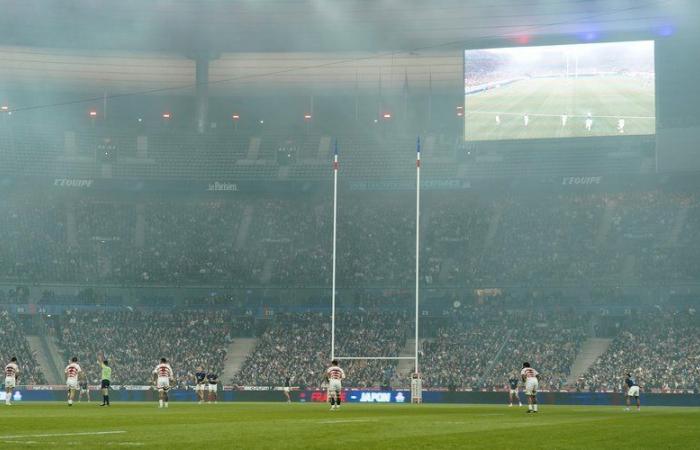For contractual reasons, the Blues play three times at the Stade de France this fall. Capital-centric programming that has advantages… but not only that.
The good news is quickly found: by playing its three matches at the Stade de France in November, the XV of France should break a symbolic record, that of the cumulative attendance for these autumn meetings. 50,000 people attended the last France-Japan, when there will be 80,000 this Saturday to welcome New Zealand (box offices closed) and this figure should still be approached for France-Argentina, which will close the international sequence next Friday. So, happy? Not completely, if we pass on these influxes in financial value.
It is here France-Japan which is mainly targeted. In a normal configuration, this match would surely have been played in the provinces. But, in this year of the Olympic Games, the XV of France was unable to play any of its three matches in the last 6 Nations Tournament in the Dyonisian enclosure. However, the FFR contractually “owes” to the operator a number of matches defined in advance.
Standoff over the concession
No choice, therefore, but to remain in the Paris region for these three test matches. Which has a cost: that of renting the enclosure, three times more expensive at the Stade de France than if the Blues had exported to the Stade Vélodrome in Marseille, the Groupama Stadium in Lyon or the Stade Pierre-Mauroy in Lille . Stadiums in which the FFR would also have had more advantageous use of hospitality (boxes and lounges) for its partners. While the 50,000 people in the stadium would therefore have been a very good operation for the Federation in the provinces, they are not so at the Stade de France, where it is estimated that it is necessary to pass the threshold of 70,000 people for the The event is financially interesting.
This quest for profitability is precisely what is also agitating behind the scenes at the Stade de France at the moment. With the concession granted to the Vinci-Bouygues duo which expires in 2025, the state has opened a call for tenders for the takeover and ensuring the future. Vinci-Bouygues is once again in the running, GL Events has also positioned itself. And it is now that the agreements which will link the FFR to the future manager are being negotiated. A toughening standoff. “Si the Stade de France does not provide satisfactory solutions for the French Rugby Federation […] we will be able to find alternative solutions. One of the two actors must understand that, if he wants to have the French Rugby Federation, he must do much more. Otherwise, they will manage to make money with other activities.” brandished Grill in February 2024, to AFP. The situation does not seem to have changed much. “The proposed conditions do not suit us” as he confirmed to us on Wednesday, when he landed in Dublin where the World Rugby election was to be played. “We need a better balance in the financial agreement and to have control over our commercial policies. We also want flexibility, flexibility on the number of matches to be played at the Stade de France.” In short, being able to export more regularly to the provinces.
The province, a development issue
Because the “all Paris” configuration does not really delight the FFR in terms of image either. “The metropolitan area of Marseille, for example, has 2 million inhabitants and only too many rugby clubs. For us, it’s a gray area” regrets President Florian Grill. “The same goes for Brittany, where there are 127 rugby fields for 2,200 football fields. These are territories that we need to convince.” Where the organization of matches against Tier 2 nations, such as Japan, makes sense, when the French XV, the supreme showcase, meets an audience that is sometimes secular in matters of rugby. “And it’s not just the French XV that’s concerned” engages the president of the “fed”. “We can organize meetings of the French women’s XV or French youth teams in these territories. And each time, we want to work with the communities to give give and take: we bring them a French team and in exchange , they are investing in infrastructure dedicated to rugby.” Another way to grow rugby with, in focus, always the same challenge: increasing the number of licensees.






